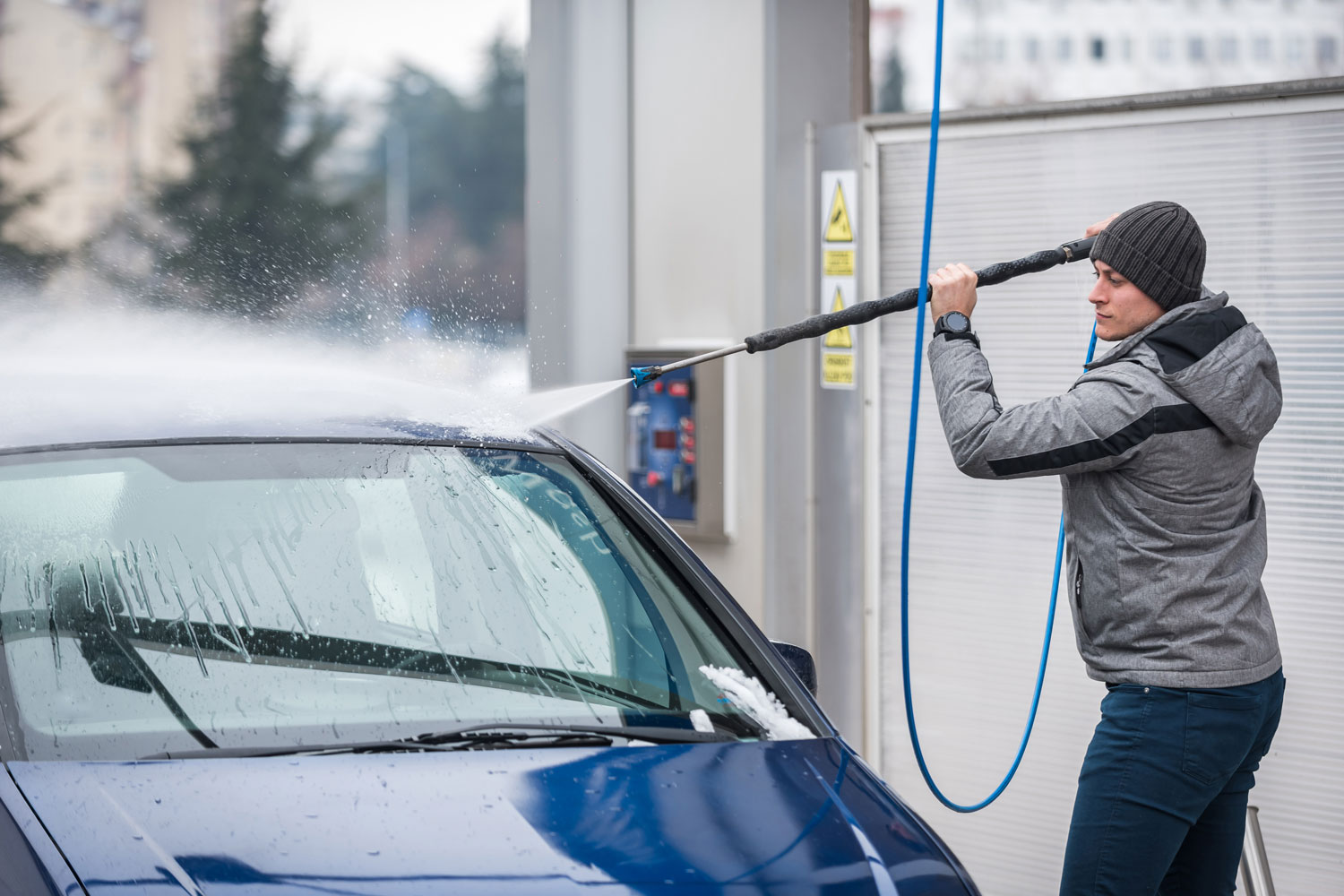Tips for Washing Your Car in Winter
Clean often, but take note of the ambient temperature.
 Getty Images
Getty Images
The deicing chemicals used to thaw icy roads can corrode your vehicle if left to sit, but washing them off in frigid temperatures poses its own problems. Here are some best practices for keeping your car clean in the winter months.
Wash Whenever You Can
According to Tyler White, owner of Simply Clean Detail Studio in Lafayette, Colorado, your best bet is “to give your vehicle a good, deep cleaning as often as you can. You do not want road salt or other corrosive deicing chemicals to stay on your vehicle any longer than necessary.”
Automated car washes will do, particularly if you’re short on time, but for the best protection against corrosion, White suggests finding a coin-operated, self-service car wash and using its pressure washer to blast away slush and salt from the crevices of the car and its undercarriage.
“You really have to get low and cut through the crud that accumulates underneath — on rocker sills, on wheels, in wheel wells, on suspension components, and so on. If you’re going to skip that deep clean and simply wash the exterior surfaces, you may actually help salt and other corrosive agents creep further into your vehicle.”
If you’re opting for an automated car wash, choose one that provides an undercarriage spray to flush away the worst of the salt buildup. A soft-touch wash — the kind that uses foam soap and felt rollers — will likely do a better job at removing road grime than a touchless wash, but if your vehicle’s wheels don’t fit in a traditional wash or the automaker calls for a touchless wash, it’s better than nothing.
How Cold Is Too Cold?
To extend the number of days they can remain open, automated washes often use heaters and/or rapid-close doors to create a warm, cozy environment for your car as it moves along the belt. Similarly, coin-operated places in the snowbelt may have radiant heaters to make the bays more comfortable and boilers to heat the wash water. Even so, going to either when the outside temperature dips below 32 degrees Fahrenheit is not recommended. That’s because on your drive home residual water from the wash can freeze on your vehicle and cause problems, like sticking windows and locks.
The warmer the weather, the better. In fact, you should probably wait for an above-40-degree day at a minimum. At-home car washing with a consumer-grade pressure washer is best left for the year's other three seasons, as those machines typically require cold water, which won’t blast away the salt as easily as warm water.
Skip the Waterless Wash
Many car-care brands offer so-called waterless washes, which are spray-on, wipe-off cleaning solutions. While that might sound promising, especially if you wish to clean your car inside your garage, these products can’t replace a real car wash. According to White, “These washes are fine for a quick surface-level detail, but they’re not ideal for an extremely dirty vehicle, nor will they get as deep as a pressure washer would.”
Written by humans.
Edited by humans.
 Evan McCausland
Evan McCauslandCar, truck, train, or bus—if a vehicle has wheels, chances are Evan McCausland is interested in it. More importantly, he’s interested in helping others learn more about cars and trucks, especially when it comes time to make a decision on their next vehicle purchase. For nearly two decades, he’s been fortunate to have the opportunity to do just that, writing for major automotive publications, automotive clubs, and automakers alike.
Related articles
View more related articles